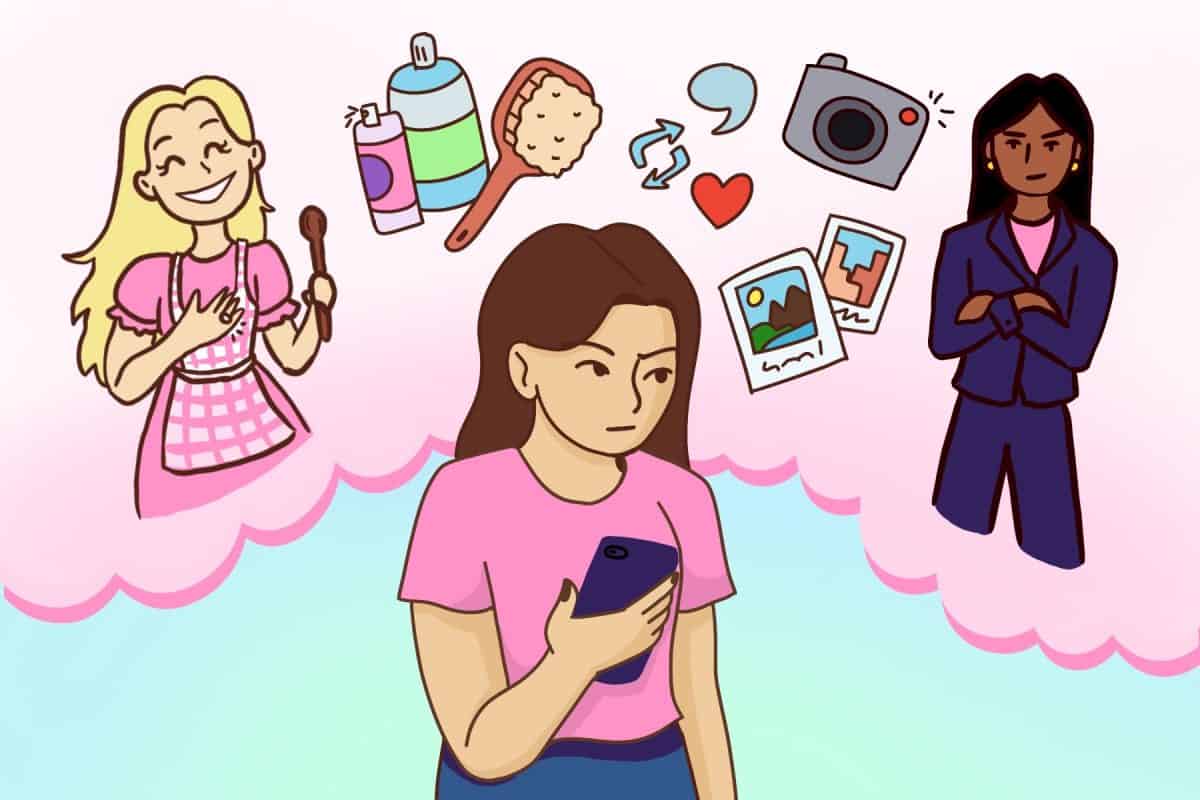In this era of digital dependency, we have placed a pernicious prioritization on how we are perceived by others. It’s no secret that the more time progresses, the more opportunities arise to immerse ourselves in this online culture.
Gen Zers have coined the term “iPad kid” to hit back at millennials and their parenting practices after the older generation trolled them on TikTok. This direct dig opened up a Pandora’s box of a debate on those bound behind the screen.
The rearing of kids without restrictions on technology unlocks far more than just unlimited apps. Studies show that overexposure to screens can lead to problems in social development, sleep disturbances and depression.
The more we expose ourselves to screens, the more we exacerbate the issue, with prolonged users showing symptoms aligning with those of attention-deficit/hyperactivity disorder. So, if screen time makes us more susceptible to shortened attention spans, what else is it capable of?
In 2019, the Musical.ly app was acquired by the parent company ByteDance, and all accounts were merged with those of TikTok. On Aug. 2, the platform was reintroduced as a singular site, where users began to post their 15-second shots at fame. While the app saw steady growth after its acquisition, it wasn’t until mid-2020 that the platform saw a serious spike in usage.
With increased downloads and more users, TikTok began to evolve into the platform we know today. Videos are now allotted longer times, filters and other effects have been enhanced, and the grip the app has on our social culture has tightened.
In 2021, it even surpassed YouTube as the platform with the most monthly time spent by users. Why? The TikTok algorithm is strategically designed to detect videos you like and share and push more similar content in your feed, as well as some it suggests for you.
We have begun to take these suggestions with an alarming level of severity. Part of the appeal of TikTok has been that it’s the newfangled way to get famous. TikTok trends are viewed as law in the eyes of those with minds still moldable. This constant cycle of fad aesthetics and trending hashtags create a culture sending a message that if you aren’t “in,” you’re out.
And according to self-proclaimed craze connoisseurs, the “mafia boss wife aesthetic” is what anyone who’s anyone is aiming for. Some styles that have seen the most engagement include “coastal grandmother,” “clean girl,” “Plazacore,” “coquette,” and even “gorpcore,” or a very strange way of saying to dress like an outdoorsman. These aesthetics allow for creativity, but also provide constraints users feel they have to fit in order to excel on the app, or at life in general.
The universal crave for widespread validation is the driving force behind this dispositional redundancy. The thought process is that if it has worked for someone, it will work for everyone, right? But aesthetics are not “one-size-fits-all.” There is a nook and cranny for everyone’s niche, and trying to portray ourselves with a personality that doesn’t fit right is simply the adult scenario of putting the square peg in the round hole.
TikTok has pushed social media to be less of a pastime and more of a performance. What once was a creative outlet has now turned into a continual competition.
TikTok has changed social media norms and how we behave on the platforms, and not necessarily for the better. Trying to balance ourselves on this trend trapeze has us focusing more on what others want from us, rather than what we want from ourselves. The people-pleasing pace of play on social media now completely contradicts its original intentions, to share our interests with the world around us.
It seems we have let the majority rule over not only what’s deemed popular, but our personality traits as well. There’s no stopping us from breaking the script and seeking out our own personal style.
The constant ebb and flow of online trends is unpredictable, and it’s unrealistic to expect ourselves to be able to keep up with the Joneses du jour; just ourselves will do just fine.







